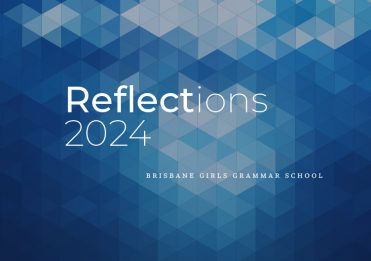Cultures of Thinking aims to make thinking visible as it seeks to deepen student learning when interrogating subject content. Cultures of Thinking also challenges teachers to examine their classroom practice in light of the Eight Cultural Forces that have emerged from 50 years of investigation into what constitutes effective classroom pedagogy.
These Cultural Forces are: Expectations; Language; Time; Modelling; Opportunities; Thinking Routines; Interactions; and Environment. Our staff have been challenged to incorporate some of this thinking into their classroom practice through a series of academic staff learning days organised by expert facilitators, participation in a wide variety of action research projects and a number of Harvard Graduate School of Education online courses. This journey has been rich and rewarding and will continue to inform our approach to best and next practice teaching and learning as we continue to endeavour to enrich our lives by learning.
One of the subtleties associated with the Cultures of Thinking methodology is its approach to the word ‘work’. Cultures of Thinking thinking challenges both staff and students to move away from the concept of work. Work is an important concept as our School Motto attests. The word fosters images of determination, grit and effort. It can also depict drudgery and boredom if viewed through a particular lens. When talking about home ‘work’ we have started to change our language and will gradually start to talk more about home ‘learning’ rather than home ‘work’. This will be tied to a more overt coupling of both school learning and home learning. Such a coupling will help our girls see an important through line between what they learn at school and how they can continue and reinforce this learning at home. Our School Diary already reflects this subtle change of approach!
Such an approach will require much practice on behalf of the learner. Below are a number of hints that may help to facilitate effective home learning:
- Our Year 7 Philosophy of Learning course begins with the acronym OWL: Organisation; Wise Use of Technology; and Listening. These skill sets are not easy but can be mastered over time.
- Organisation is essential. Not all subjects are timetabled every day. Becoming aware of the rhythm of our 10-day timetable will help considerably with effective home learning. When students begin to recognise when concepts are in need of independent reinforcement, such developing maturity should be celebrated. This reinforcement will also help to encode concepts into longer term memory. Such an approach to long-term memory learning will be of immense value when navigating important pieces of both internal and external summative assessment. An important aspect of organisation is planning – planning is essential for academic success.
- Wise Use of Technology is easier said than done! Apps are available to help train young people to stay on task, teaching them to avoid by mobile-device distraction. Mobile distraction is the enemy of effective home learning!
- Listening is an essential skill to master. Our brain is encoded to day dream. Determined focussing requires much discipline as well as an acknowledgement that difficult concepts may have been lost due to a lack of focus. If this is the case, girls should feel confident in emailing their teachers for a catch-up on the concepts either through email or in person. A quick five minute catch-up can eliminate much stress and anxiety—stress and anxiety are the enemies and destroyers of effective learning!
- Sleep is essential for effective learning. Sleep allows the brain to rest and gain the plasticity needed for effective learning. There has been much research on this topic over the years. If possible, an alarm clock should be used rather than a mobile device, thereby keeping bedrooms as device free zones. It’s not easy for any of us.
- Exercise is also essential for effective learning and brain health. Slip, slop and slap as precursors to suitable sun exposure, hopefully partnered by suitable heart beat elevation and perspiration, is a good way to generate endorphins, mental health and the fostering of a learning ready brain.
- Handwriting must also be practiced. While laptops and mobile devices that require both keyboard and finger dexterity are important and unavoidable aspects of our lives, so too is handwriting. The majority of exams will continue to be handwritten into the immediate future—this will especially be the case at critical stages when completing Unit 3 and Unit 4 pieces of summative internal and external assessment. Students should get into to the habit of being handwriting fit. Using pen and paper at home and school is essential for such fitness. Keyboard dexterity as well as handwriting dexterity have become the new norm.
Understanding that learning occurs not only at school but also at home is very important for success. Recognising the importance of organisation, the wise use of technology and listening will help to facilitate this. Students are encouraged to develop meaningful and achievable study routines that will help to facilitate overall learning. Overall learning is a function of both school-based and home-based learning.
Dr Bruce Addison
Deputy Principal (Academic)
*Cultures of Thinking forms part of Harvard University’s long-running Project Zero.
Ritchart, R. (2015). Creating Cultures of Thinking: The 8 Forces We Must Master To Truly Transform Our School. Jossey-Bass, San Francisco.




